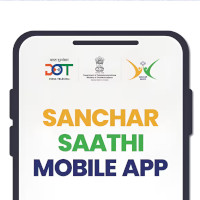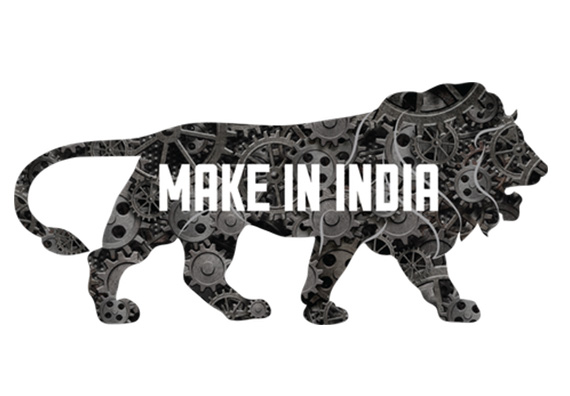Manmohan Singh
| Full Name | Manmohan Singh |
| Date of Birth | September 26, 1932 |
| Place of Birth | Gah, Punjab (now in Pakistan) |
| Nationality | Indian |
| Spouse | Gursharan Kaur (married in 1958) |
| Children | 2 daughters – Daman Singh and Upinder Singh |
| Education | – B.A. (Hons.) in Economics, Panjab University, Chandigarh – M.A. in Economics, University of Cambridge – D.Sc. in Economics, Oxford University |

Introduction
Manmohan Singh is a renowned Indian economist and politician who served as the 13th Prime Minister of India from 2004 to 2014. Widely regarded as the architect of India’s economic liberalization in the early 1990s, Singh played a pivotal role in transforming India into one of the fastest-growing economies in the world. He is known for his pragmatic, cautious approach to governance and policy, with an emphasis on economic reforms, social welfare, and global diplomacy.
Childhood & Early Life
Manmohan Singh was born on September 26, 1932, in the village of Gah, located in present-day Pakistan, which was part of Punjab before the Partition in 1947. He belonged to a Sikh family, and his early life was marked by the hardships caused by the Partition. His family migrated to India following the Partition, and they settled in Amritsar, Punjab, where Singh completed his early education.
From an early age, Singh demonstrated an aptitude for academics, particularly in economics, and his quiet, studious nature earned him admiration. His interest in economics led him to pursue his higher studies at prestigious institutions, eventually taking him to Cambridge and Oxford.
Education
- B.A. (Hons.) in Economics from Panjab University, Chandigarh.
- M.A. in Economics from the University of Cambridge, United Kingdom.
- D.Sc. in Economics from Oxford University, where he studied under the supervision of renowned economist Sir Alec Cairncross.
Singh’s rigorous academic training laid the foundation for his future role in economic policymaking and governance.
Political Career
Entry into Politics and Key Roles:
- 1970s-1980s: Manmohan Singh’s entry into Indian politics was largely through his work as an economist. He served as an advisor to the Planning Commission of India and later as the Chief Economic Advisor to the Indian government.
- 1991: Finance Minister:
Singh’s breakthrough came when he was appointed the Finance Minister of India in 1991 under Prime Minister P.V. Narasimha Rao. This was a critical period for India, as the country was facing a severe economic crisis, with rising debt, inflation, and balance of payments issues. Singh initiated a series of economic reforms known as the 1991 economic liberalization, which included:- Devaluation of the Rupee to improve export competitiveness.
- Deregulation of industries and reduction of the License Raj.
- Opening up to foreign direct investment (FDI).
- Privatization of state-owned enterprises.
- Prime Minister (2004-2014): Singh was appointed the Prime Minister of India in 2004, following the Congress Party’s victory in the general elections. His tenure lasted two terms (2004–2009 and 2009–2014). Although his government was a coalition, Singh’s leadership was pivotal in steering the country through significant reforms and challenges.
- Under Singh, India experienced strong economic growth, averaging 7-9% annually, and became one of the world’s largest and fastest-growing economies.
- He also focused on poverty alleviation, implementing several key welfare programs like the National Rural Employment Guarantee Act (NREGA), which aimed at providing job security to rural populations.
- Singh’s government was also known for focusing on education and health reforms, including the Right to Education Act (2009), which made education a fundamental right for children.
- Foreign Policy:
Manmohan Singh’s tenure as Prime Minister saw a shift towards a more open and assertive foreign policy. His government improved India’s relations with several countries, particularly the United States, with the signing of the India-U.S. nuclear deal in 2008, which facilitated India’s access to nuclear technology and energy despite not being a signatory to the Nuclear Non-Proliferation Treaty (NPT).
Major Works
- Economic Reforms (1991): Singh’s reforms as Finance Minister were landmark moments in Indian economic history. He dismantled the heavily regulated and protectionist economic policies that had been in place for decades, promoting a market-driven economy.
- Liberalization: He played an instrumental role in liberalizing India’s economy, including bringing in foreign investments and reducing trade barriers.
- Fiscal Reforms: As Prime Minister, Singh oversaw several structural reforms aimed at improving public sector efficiency, fiscal discipline, and long-term growth.
- Social Programs: Singh was a strong proponent of inclusive growth. He supported several initiatives, including:
- NREGA (National Rural Employment Guarantee Act) for rural employment.
- Right to Education Act to make education accessible to all children.
- National Health Policy, aiming to improve the healthcare system in India.
Awards & Achievements
- Padma Vibhushan (2008): The second-highest civilian award in India, conferred for his exceptional and distinguished service in the field of public affairs.
- Best Finance Minister in the World (1993): Awarded by The Banker magazine for his outstanding economic policies and leadership during India’s economic reforms.
- Global Vision Award (2014): Given for his leadership in economic development and global diplomacy.
- Honorary Doctorates: Singh has been awarded honorary degrees from several universities, recognizing his contributions to economics and public service.
- Time 100 (2009): Named among the 100 most influential people in the world by Time magazine.
Personal Life & Legacy
Manmohan Singh is known for his modest, reserved personality. He has consistently shied away from the limelight, preferring to focus on policy rather than politics. Known for his honesty and integrity, Singh’s legacy is one of economic transformation and governance marked by pragmatism, efficiency, and a commitment to social welfare.
- Personal Traits:
- Singh is an introverted leader who rarely indulged in media or political theatrics. His calm demeanor and intellectual approach to politics earned him respect across party lines.
- Known for being a deeply spiritual person, Singh follows the Sikh faith and often draws on his spirituality to guide his public and private life.
- Legacy:
Singh’s tenure is viewed as transformative for India’s economy. He has been credited with opening up India’s economy to the global market and lifting millions out of poverty. Despite facing challenges during his second term, including allegations of corruption in his administration, Singh remains a respected figure in Indian and global politics.
Trivia
- First Non-Elected Prime Minister: Manmohan Singh was the first Prime Minister of India who was not directly elected by the people but appointed by the Congress Party due to his expertise.
- Silence in Politics: Despite his high-profile political career, Singh is known for his reserved and calm demeanor. He rarely engages in contentious or aggressive political debates.
- Linguistic Prowess: He is proficient in multiple languages, including English, Hindi, Punjabi, and Urdu.
- Passion for Reading: Singh is an avid reader, particularly of history and economics. His intellectual curiosity is a hallmark of his personality.
Conclusion
Manmohan Singh’s career, spanning over five decades, marks him as one of the most influential political leaders in modern India. His leadership during India’s economic transformation in the 1990s and his subsequent tenure as Prime Minister solidified his place in India’s history. A visionary economist and a man of integrity, his legacy continues to shape India’s economic and political landscape.
Key Terms:
- 1991 reforms ,
- economic growth ,
- economic liberalization ,
- economic policies ,
- Economic Transformation ,
- finance minister ,
- global vision award ,
- inclusive growth ,
- India-U.S. nuclear deal ,
- India’s growth story ,
- Indian economist ,
- Indian government reforms ,
- Indian leadership ,
- Indian Politics ,
- Manmohan Singh ,
- NREGA ,
- Padma Vibhushan ,
- Political Legacy ,
- Prime Minister of India ,
- Right to Education ,
- Sikh leader
Disclaimer: The information provided here has been compiled from various sources to the best of our knowledge. While every effort has been made to ensure the accuracy of the details, there may be occasional errors or omissions. If you find any discrepancies or incorrect information, kindly inform us so we can make the necessary corrections. Thank you for your understanding and cooperation.





